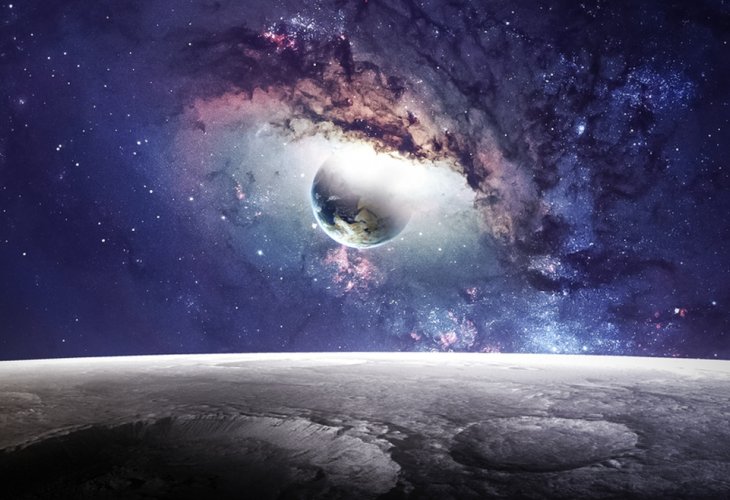Faith
Is the Universe Infinite? Scientific Proofs of a Finite Creation
Understanding why natural laws are fixed, why the cosmos is limited, and how this points to the existence of a Creator
 (Photo: shutterstock)
(Photo: shutterstock)Dafna asks: “Hello, I heard that the probability of a universe with natural laws as precise as ours is basically impossible, and that this is one of the proofs of God’s existence. But I don’t understand the proof — if the universe is infinite, then wouldn’t there be countless possibilities within it?”
* * *
Hello Dafna, and thank you for your question.
The idea you raised is a common misconception that needs clarification: the universe is not infinite, and its laws of nature do not vary from place to place. They were fixed from the very beginning — “He gave a law, and it shall not be transgressed” (Tehillim 148:6), and do not change from star to star.
The universe is indeed vast, but it is not infinite. The number of stars is finite, estimated by NASA is roughly one septillion. The amount of matter in the universe determines its size (since space is essentially the distance between stars, and more “space” is created as the universe expands).
According to the law of conservation of matter and energy, new matter cannot be created or destroyed in the universe. Fire, for example, does not eliminate wood; it simply breaks it down into tiny particles that disperse into the air.
We now know that matter can be transformed into energy, and energy into matter, but the total quantity never changes. This means that the amount of matter in the universe has been constant from its very first moment. Not a single atom more or less has appeared since.
Because the amount of matter in the universe is finite, space itself is finite. The size of space depends on the amount and motion of matter within it.
The universe is finite, and so are the forces acting within it. The laws of nature shape galaxies according to the same equations. The gravity that works on Earth works in exactly the same way on a planet at the farthest edge of the universe. All stars are built from the same basic building blocks of molecules and atoms, because the same natural laws govern every particle everywhere.
These laws have restricted the universe from its inception to one very specific form of behavior, and not to any other. There are not multiple kinds of gravity, but one.
All nebulae, galaxies, and stars had to reach their exact form, size, and place because gravity required it. The entire periodic table of elements was “encoded” into the universe from the beginning, before molecules even existed.
The same is true on the molecular level: particles must move in a specific way according to nuclear and electrical forces. Every atom and every molecular bond had to form exactly as we see them today.
These unchanging laws testify to the existence of a Lawgiver. Without a Lawgiver, there cannot be laws.
Our universe cannot be random, because it operates according to laws that appeared together with it, shaping all matter. The primordial state scientists call the “singularity” contained all the energy the universe would ever have, along with the very laws of nature that would shape that energy into atoms, molecules, galaxies, stars, planets, and life-sustaining substances like carbon, water, and oxygen.
From this we learn that only God is infinite. Apart from Him, nothing in existence is infinite. All creatures, and the universe itself, are limited and finite.
This is the foundation of all wisdom, as Maimonides explains in Mishneh Torah, Laws of the Foundations of the Torah, Chapter 1: “The foundation of all foundations and the pillar of all wisdom is to know that there is a First Being, who brings into existence all that exists. Everything in heaven, on earth, and between them exists only because of His existence. If it were possible that He did not exist, nothing else could exist… This Being is the God of the world, Lord of all the earth. He moves the spheres with a power without end or limit… He causes them to turn without hand and without body.”
The universe, with its boundaries and its natural laws, testifies to its infinite Creator who formed and governs it. Without Him, there would be no universe and no laws of nature.
Maimonides further explains why wisdom cannot exist without a Wise One: “It is obvious that anyone who fashions a tool must already know the purpose for which it is made; otherwise he could not create it. If sight itself were unknown to him, how could he design the organs of sight? Could any intelligent person claim this happened by accident? Nature has no mind or management, and all philosophers agree on this. If the Source of existence did not perceive these things, how could He bring into being a nature directed toward a purpose He did not know? Rightly did David call such thinkers fools and senseless.” (Guide for the Perplexed III:19).

